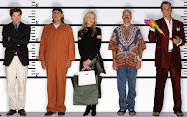 I highly recommend reading the article "The Truth Alone Will Not Set You Free" by Mark Hedges, regarding the destruction and replacement of American culture with mass, corporate culture ("junk culture") and the repercussions of this shift. Below are some highlights.
I highly recommend reading the article "The Truth Alone Will Not Set You Free" by Mark Hedges, regarding the destruction and replacement of American culture with mass, corporate culture ("junk culture") and the repercussions of this shift. Below are some highlights.The most important struggle will be to wrest the organs of communication from corporations that use mass media to demonize movements of social change and empower proto-fascist movements such as the Christian right.
American culture—or cultures, for we once had distinct regional cultures—was systematically destroyed in the 20th century by corporations. These corporations used mass communication, as well as an understanding of the human subconscious, to turn consumption into an inner compulsion. Old values of thrift, regional identity that had its own iconography, aesthetic expression and history, diverse immigrant traditions, self-sufficiency, a press that was decentralized to provide citizens with a voice in their communities were all destroyed to create mass, corporate culture. New desires and habits were implanted by corporate advertisers to replace the old. Individual frustrations and discontents could be solved, corporate culture assured us, through the wonders of consumerism and cultural homogenization. American culture, or cultures, was replaced with junk culture and junk politics. And now, standing on the ash heap, we survey the ruins. The very slogans of advertising and mass culture have become the idiom of common expression, robbing us of the language to make sense of the destruction. We confuse the manufactured commodity culture with American culture.
 The emergence of corporate and government public relations, which drew on the studies of mass psychology by Sigmund Freud and others after World War I, found its bible in Walter Lippmann’s book “Public Opinion,” a manual for the power elite’s shaping of popular sentiments. Lippmann argued that the key to leadership in the modern age would depend on the ability to manipulate “symbols which assemble emotions after they have been detached from their ideas.” The public mind could be mastered, he wrote, through an “intensification of feeling and a degradation of significance.”
The emergence of corporate and government public relations, which drew on the studies of mass psychology by Sigmund Freud and others after World War I, found its bible in Walter Lippmann’s book “Public Opinion,” a manual for the power elite’s shaping of popular sentiments. Lippmann argued that the key to leadership in the modern age would depend on the ability to manipulate “symbols which assemble emotions after they have been detached from their ideas.” The public mind could be mastered, he wrote, through an “intensification of feeling and a degradation of significance.”The modern world, as Kafka predicted, has become a world where the irrational has become rational, where lies become true. And facts alone will be powerless to thwart the mendacity spun out through billions of dollars in corporate advertising, lobbying and control of traditional sources of information. We will have to descend into the world of the forgotten, to write, photograph, paint, sing, act, blog, video and film with anger and honesty that have been blunted by the parameters of traditional journalism.
“Read ‘The Gettysburg Address,’ ” [Stuart] Ewen [author of “Captains of Consciousness: Advertising and the Social Roots of the Consumer Culture” and “PR: A Social History of Spin”] said. “Read Frederick Douglass’ autobiography or his newspaper. Read ‘The Communist Manifesto.’ Read Darwin’s ‘Descent of Man.’ All of these things are filled with an understanding that communicating ideas and producing forms of public communication that empower people, rather than disempowering people, relies on an integrated understanding of who the public is and what it might be. We have a lot to learn from the history of rhetoric. We need to think about where we are going. We need to think about what 21st century pamphleteering might be. We need to think about the ways in which the rediscovery of rhetoric—not lying, but rhetoric in its more conventional sense—can affect what we do.













.jpg)

